
For expats: How to choose expatriate health insurance in Morocco
Private, well-equipped establishments provide access to quality care, but for advanced specializations (heart surgery; orthopedics; ENT; etc.) you might need to consider seeking care in your country of origin. If you are not a permanent resident in Morocco yet, the right global insurance policy will efficiently fill in gaps not covered by any social welfare coverage you might have.

| Healthcare expenditure per capita and per year | €378,40 |
| Annual indexation of health expenses | 5% |
| CFE (Fund for French Abroad) hospitalization reimbursement rate | 67% |
| Number of available insurance companies | 15 |
| Annual costs of hospitalization coverage for 30-year-olds | €600 |
| Annual costs of hospitalization coverage for 50-year-olds | €1068 |

The Moroccan healthcare system has evolved a lot in 20 years, but remains fragile. The introduction of compulsory health insurance (AMO) in 2006 was only the beginning of a series of reforms to create an environment of trust for Moroccans and foreigners. Private health facilities have begun to offer quality services, but at relatively high prices. However, in the public sector, quality still needs to be improved.
The reforms announced in recent years are late in being implemented due to a lack of financial resources. In Morocco, only 6% of the overall national budget is allocated to healthcare, whereas the WHO recommends devoting 12%. This results in insufficient healthcare personnel, inconsistent quality of care, and deteriorating infrastructure in the public sector.
Fifty percent of healthcare expenses in Morocco are assumed by households who, even if they have to pay out of their own pocket, prefer the private sector. Healthcare insurance finances about 22% of healthcare expenses.
As a result, the Ministry of Health is currently working on a strategic public-private partnership to improve and develop the healthcare system in the coming years.
Public sector care is affordable, but of mediocre quality – and in some areas it is almost deplorable.
There is a real lack of healthcare personnel in the public sector. This is a problem directly linked to the civil servant status of physicians, who thus are not well payed. In August 2019, 70% of all physicians protested with a public strike.
Public hospitals are dated, if not outdated. A 2021 action plan aimed to rebuild the Ibn Sina hospital in Rabat and to build eight provincial hospital centers, in addition to a regional hospital and 11 local hospitals.
In general, public health facilities in the main cities are better equipped and offer acceptable service.
The quality of care in Morocco's private sector is excellent but expensive.
The equipment is modern and well maintained. In addition to basic services (general medicine, dentistry, pharmacy), specialized services are also available: dialysis, X-rays, ultrasounds, MRIs, CT-scans, care and rehabilitation, etc. The price is in line with the quality, while remaining lower than in France.
In the case of an operation, or other interventions requiring technical or long-term care, to control costs and quality, it’s wise to consider care in Europe if possible. Indeed, in the private sector where prices are not regulated, certain specializations may be more expensive than in a country where prices are regulated by the local health insurance system.
In Morocco, the prices of medical procedures will vary depending on which health professional you approach.
In general, a consultation with a general practitioner costs between 150 and 300 MAD, and a consultation with a specialist between 250 and 400 MAD, depending on whether they’re in the public or private sector.
The price of prescription drugs is generally comparable to or lower than those in Europe. Pharmacies in major cities are generally well stocked.
For beneficiaries of the French Assurance Maladie Obligatoire (AMO), the reimbursement rates used as reference are disconnected from today’s reality, so out-of-pocket expenses remain high, even for the insured. For example, a general practitioner is reimbursed at 70% of the reference rate of 80 MAD, although the consultation actually costs 150 MAD. AMO health insurance will reimburse the equivalent of 56 MAD, leaving 94 MAD to be paid by the patient.
Three agreements have been signed with health professionals to correct these reference rates, and thus reduce out-of-pocket expenses for the insured. However, these agreements have not yet been put into effect.
The AMO also covers from 70% to 90% of hospitalization costs, based on a reference rate of 550 MAD per day, depending on the sector chosen (public or private).
Taking out expatriate health insurance allows you to eliminate or limit your remaining hospitalization and other medical expenses. This is especially useful since hospitals can demand full payment of medical expenses before patients are discharged, under threat of legal action. An expat health insurance gives you the peace of mind that your hospitalization expenses will be taken care of directly if you are admitted for more than 24 hours.
For your dental expenses, the AMO provides a fixed amount of 3,000 MAD every two years. This lump sum should become annual. In general, for dental care or implants, you could find rates 40% cheaper than in most OECD countries. So, if you opt for dental coverage with your expatriate health insurance, it’s not essential to choose a high level of reimbursement.

Morocco is not a high-risk country for expatriates. Therefore, there are no mandatory vaccinations. However, for preventive reasons, you are advised to be up to date with the classic DTP, MMR, and anti-tuberculosis vaccinations, as well as vaccinations against hepatitis A, hepatitis B, and possibly typhoid fever in the case of long stays in precarious hygiene conditions.
Take into account in your preparation for your departure that, for hepatitis B, you’ll need two vaccinations spaced one month apart, before you leave. If you need to make a hasty departure, there is an accelerated scheme consisting of three doses at shorter intervals.
Some precautions should also be taken with drinking water, especially outside large cities. It’s also is best to avoid bathing in wadis and dams, and to protect yourself with mosquito repellents from sand flies and midges that can transmit a skin infection (Leishmaniasis).
Most physicians in the major cities speak French or English.
Expatriates often turn initially to physicians at consular posts and to lists of recommended medical professionals compiled by the heads of those consular posts. These lists also include hospitals and clinics.
For CFE members only, you won’t need to pay up front at hospitals and clinics approved by the CFE. However, this list is evolving and is only available at the time of hospitalization. Many of our members have tried to obtain these lists in advance, without success.
Otherwise, you have a choice of private clinics that offer quality services.
Expatriate health insurance will also allow you to get a second medical opinion for specific cases, or for those requiring hospitalization. All expatriate insurers now offer access to a teleconsultation platform for basic or specialized health issues.
It is important to know that private clinics often perform Cesarean sections for "comfort." If you do not want one, you will need to remind your obstetrician repeatedly. As private clinics are looking for profitability above all, in Rabat, Casablanca, and Agadir, nearly 80% of deliveries in 2018 were C-sections.
The total cost of childbirth, according to national pricing references, can range from 4,000 MAD for a natural birth to 8,000–12,000 MAD for a Cesarean section. In the private sector, it will cost you from 12,000 MAD to 20,000 MAD if you are accommodated in a "luxury" room. In a clinic, a night in a single room can vary from 600 to 850 MAD, and an epidural will cost 2,200 MAD.
On the other hand, it is not common in Morocco to be "hospitalized" more than 24 hours after the delivery, if everything goes well and there are no medical complications. In the private sector, the physician will ask you if you wish to leave the same day or if you prefer to stay.
Birth-preparation activities are rare, but it’s possible to find people trained in this field, depending on your city of residence. Some telemedicine platforms of expatriate health insurance companies can cover and provide this support.

There are bilateral social security agreements between Morocco and the following countries: Algeria, Belgium, Canada, Denmark, Egypt, France, Germany, Libya, Luxembourg, the Netherlands, Portugal, Quebec, Spain, Sweden, and Tunisia. They facilitate the transition of residents from one country to another.
Of particular note is the resulting relative ease of exporting benefits and rights from one country to another, and also the taking into account of periods of contribution in both countries.
Thus, a beneficiary of the French Social Security system will benefit from the Moroccan Social Security system without delay. To benefit from this, you must have a "certificate of insurance periods" form filled out before leaving France.
Note: This agreement will facilitate your transition to the local system, but it does not allow you to carry over your coverage from your country of origin to Morocco. In other words: it allows a German who moves to Morocco to immediately enter the Moroccan medical system and be removed from the German system.
In Morocco, every citizen is required to sign up for a compulsory medical insurance called Assurance Médicale Obligatoire (AMO). Moroccan public sector employees and retirees are affiliated with the Caisse Nationale des Organismes de Prévoyance Sociale (CNOPS), or soon to be the Caisse Marocaine d'Assurance Maladie (CMAM), while those in the private sector are managed by the Caisse Nationale de Sécurité Sociale (CNSS). These two organizations are supervised by the National Health Insurance Agency, Agence Nationale d’Assurance Maladie (ANAM).
The Moroccan social-welfare system provides coverage for illness, maternity, disability, old age, survivors, unemployment, and family benefits. Companies are responsible for signing up for insurance and reinsurance policies to cover their employees’ risk of occupational illness and accidents.
For public- and private-sector employees, it is the employer who integrates the new employee into the system, within 30 days of hiring, and then declares their monthly wages and the number of days worked to CNSS.
Self-employed and non-salaried workers must register and contribute according to their activity.
Once registered, the rights are effective as of the 55th day of contribution. Spouses and dependent children under the age of 21 are also covered. A card is issued to each person, but this does not give them access to a third-party payment service; expenses will have to be paid up front.
The AMO covers between 70% and 90% of the reference rates related to your bills for general medicine and medical and surgical specialties, biology and radiology fees, paramedical care, pharmacy costs (depending on the highest price of the generic medication), dental and vision care, and pregnancy-related care. Generally, primary care is provided in community clinics, and more specific care in hospitals. The level of reimbursement depends on whether care was provided in the public or private sector.
Private insurance is recommended if you wish to benefit from a level of care comparable to the French level of care, and especially to have access to the private sector. Expatriate health insurance will be a little more expensive than local private insurance, but will provide you with coverage in your home country and internationally, when the local insurance cannot.
Joining the CFE or signing up for private health insurance is essential if you’re looking for more benefits than the low local social-welfare allowances – and in particular if you want to have access to private sector care. CFE health insurance reimburses all your expenses: medical, surgical, hospital, dental, vision, laboratory, and others – within the limits of the rates and tariffs applied in CFE’s zone 1 coverage.
For example, 65% of pharmacy costs will be reimbursed (the regulation on generic drugs does not apply), or 50% of blood-test costs.
A special feature of CFE coverage in Morocco is that 100% of hospitalization costs are covered for insured persons who haven’t taken out complementary insurance. This coverage is currently provided through VYV assistance, CFE's partner for up-front hospitalization expenses. To benefit from this 100% coverage, you must first contact your provider and go to the hospital designated. It’s not possible to choose your place of treatment or even view a list up front. Several of our policy holders have tried in vain.
Moreover, the CFE isn’t obliged to maintain this system of 100% coverage indefinitely. It might end at any time. Since 2013, three such systems have been successively implemented with long periods of interruptions. It was provided by CFE directly in 2013, then it was managed by Mutuaide before disappearing, then coming back with VYV.
It‘s up to you to determine what your needs are and whether to opt for CFE coverage alone or get complementary coverage as well. Having expatriate health insurance in addition to the CFE provides you with 100% hospitalization coverage in the hospital of your choice, and additional reimbursements for your everyday medical expenses – especially interesting for those who want good coverage for vision and dental care.
Calculated according to your age and marital status, your contribution to the CFE grants you worldwide coverage, letting you quickly recover your local rights when you return to the EU.

The local compulsory health insurance grants you satisfactory reimbursements with reasonable out-of-pocket expenses for care provided in the public health system. However, it does not sufficiently cover private healthcare.
Expatriate health insurance in Morocco will allow you to benefit from the following advantages:
- Private healthcare coverage;
- Possibility to choose a trusted physician and preferred health establishment;
- Possibility to be treated in other countries (either to have access to better facilities, or in the context of a business trip or vacation);
- Teleconsultation and second medical opinion services;
- Easy repatriation, if needed.
Given the prices in Morocco, a basic to intermediate level of coverage should grant you the right level of reimbursement.
The insurance can be extended to include additional coverage, depending on your situation: repatriation assistance, legal assistance, daily indemnity, death and disability benefits – all of which can be very useful.
Repatriation assistance will allow you to organize a medical evacuation to your country of origin or to a neighboring country when important medical interventions are needed.
It will help you avoid exorbitant costs or possible lack of local medical facilities. Even if this is rare today, it is still possible.
For more details, you can compare expat insurance policies online.
AMO affiliates do not have third-party payment options for routine medical expenses. You have to pay up front. Reimbursement requests are made once a month. Your claim must be submitted within two months of the first day of treatment to be considered valid.
With expat health insurance, when you are hospitalized for more than 24 hours, the insurer will arrange direct payment to the hospital/clinic. Routine medical and vision/dental expenses must be paid up front.
The reimbursement request is easily done online or via mobile applications.
In general, invoices of up to €1,000 can be submitted digitally. Invoices over €1,000 (rarer) will still need to be sent by mail.
Signing up for expatriate coverage is more complex than for a traditional health insurance plan. It is therefore advisable to apply about 30 days before your departure or desired date of effectivity. It is neither possible to apply for expatriate health insurance while you are in Morocco nor you are a moroccan citizen.
However, we advise you to do so before leaving, to benefit from the coverage immediately upon your arrival and from an optimal choice of plans.
Our website allows you to request a quote online and compare coverage options. An adviser can then help you with the entire sign-up process.
Civil liability and legal protection: It covers all material and immaterial damage that an expat or a member of their family could cause to a third party. Civil liability insurance, however, does not apply when driving a motor vehicle – check with your car insurance company for that coverage.
Death/disability insurance: While basic coverage is provided locally, it is minimal. You will need extra coverage to protect your spouse and children. The recommendation is to take out private insurance or one of the CFE options in order to be covered.